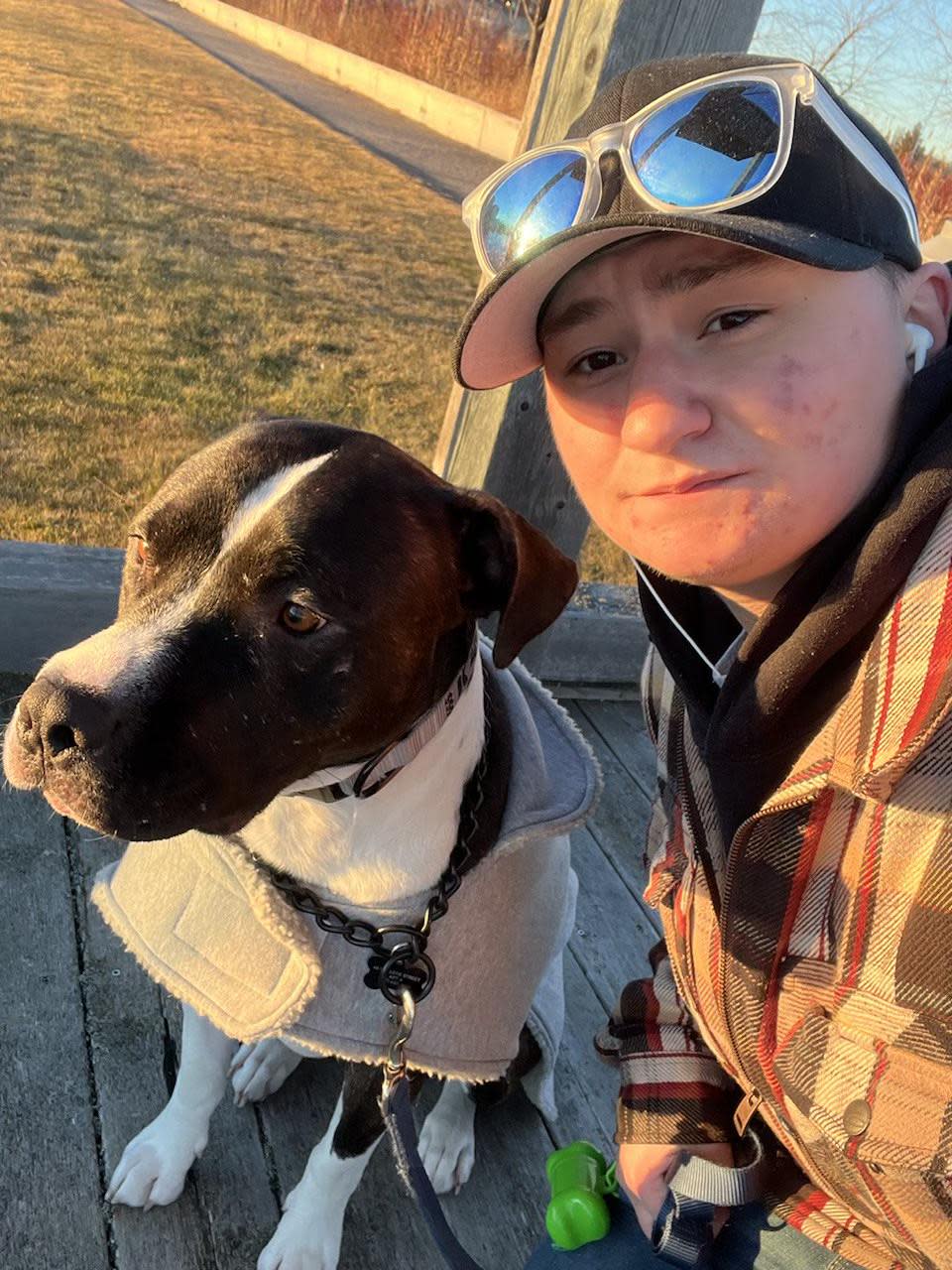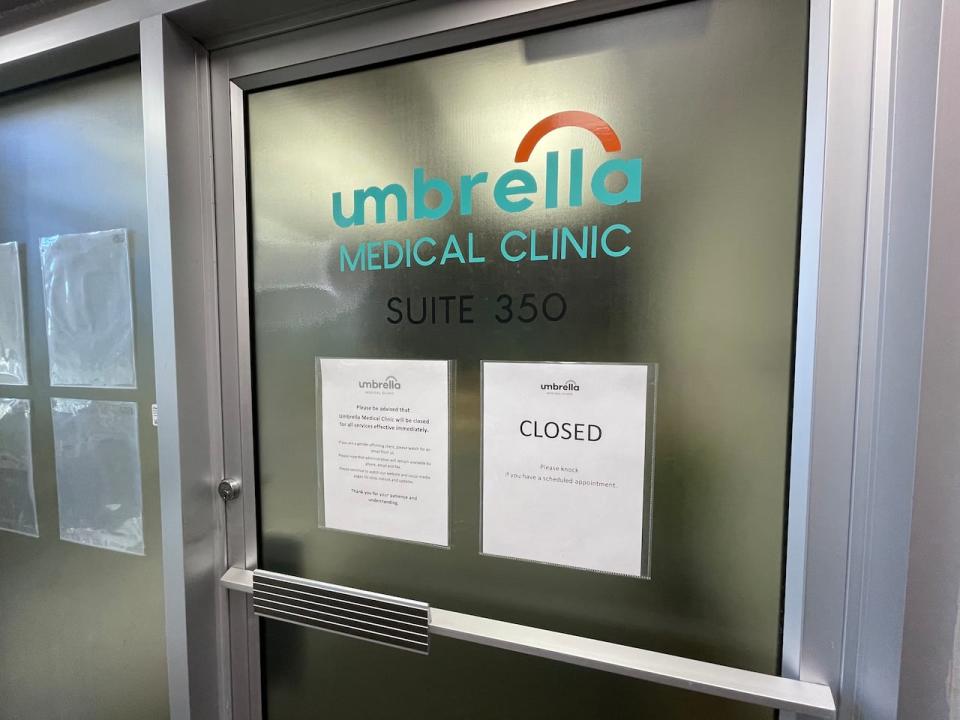Gender-affirming care clinic in Thunder Bay, Ont., closes, leaving patients with limited options

One of the only clinics offering gender-affirming medical care in Thunder Bay, Ont., has closed, leaving trans patients in the city and surrounding region with few options.
Last week, the Umbrella Medical Clinic, which provided sexual health services, announced it would shut until further notice.
"It just feels like whiplash," Dax O'Neill, a patient, said about Umbrella Clinic's closure. "It's going to be hard for me to get testosterone, the treatment that I need."
Gender-affirming care is a blanket term for health care that supports a patient's gender identity and expression. It can include any combination of counselling, hormone therapy, puberty blockers and surgeries.

Umbrella Medical Clinic, which offered gender-affirming medical care in Thunder Bay, Ont., announced it was closing as of Jan. 29. (Marc Doucette/CBC)
Umbrella Medical Clinic opened in 2018 with the aim of filling gaps in Thunder Bay's health-care system by offering everything from transgender health care, to emergency contraception and HIV prevention. It temporarily closed in October 2021 after founder Dr. Annabella Zawada died unexpectedly, but reopened in August 2022.
O'Neill hasn't received any information on whether Umbrella Medical will ever reopen or referrals to other practitioners.
Umbrella Medical's administrator declined an interview with CBC News, but said in an email to watch their website for updates.
The hormone testosterone is used by many transitioning patients to reduce estrogen production and induce "masculine" physical traits. Since it's a federally controlled substance, many walk-in clinics will not prescribe it, and O'Neill said he is dependent on specialists or family doctors for renewals.
O'Neill added he wished Umbrella Clinic said whether the closure was permanent or provided more info.
"They didn't list any resources we could go toward or even try to hook us up with anything. It was just like: 'Fend for yourself,'" said O'Neill. "I feel like I'm getting abandoned."
NorWest Community Health Centres in Thunder Bay also provides "Gender Affirming Shared Care," according to its website.
But Sarah Martin, another Umbrella Medical patient, has also found herself scrambling to find resources.
Not being able to access this care might be a matter of life or death. - Dr. François Doiron
"I'm pretty upset. I felt kind of part of the flock at Umbrella," she said. "I know the people there really cared about all of us."
Martin, who has been undergoing hormone replacement therapy (HRT) for over two years, said all she needs is prescription renewals and yearly checkups to monitor for any side-effects that could occur. But Martin said she worries it will be hard to find a provider comfortable enough to handle her HRT in Thunder Bay.
Dr. François Doiron, a family doctor in Dryden who provides gender-affirming care to patients in the region, said Martin's fears are justified, and this care is critical to them.
"Not being able to access this care might be a matter of life or death," Doiron said.
"This population has a very high risk of depression and poor mental health outcomes," he said. Suddenly stopping certain types of gender-affirming care, such as hormone therapy, can have significant negative physical health impacts."
How family doctors can play a role
Both O'Neill and Martin said their family doctors had previously expressed discomfort with providing gender-affirming care.
Few doctors in Ontario provide such services. It's hard to find a provider, even in big cities like Toronto, and it's even more difficult in northwestern Ontario, said Doiron.
"It's even beyond difficult," he said. "Sometimes it's almost impossible."
A 2019 Trans Pulse Canada survey of transgender and non-binary people aged 14 and over from across Canada found nearly 45 per cent reported had an unmet health-care needs. Of survey respondents who were continuing their gender-affirming care, 40 per cent reported they were on wait-lists, most often for surgery.
O'Neill and Martin both said they want to see more practitioners in Thunder Bay offering gender-affirming care.
"I would hope that maybe our general practitioners and family doctors could get more on board with this as it's becoming more and more prevalent in society," said Martin. "Our care is really not that difficult to handle."
O'Neill wants another clinic to open in Thunder Bay with support from the community.


